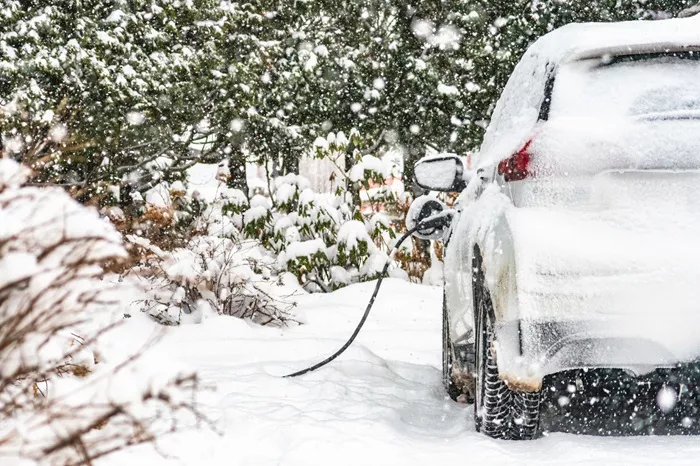As winter approaches, ensuring your vehicle or machinery operates efficiently in cold temperatures becomes essential. The type of diesel fuel you use significantly impacts engine performance and longevity during the cold months. Understanding the nuances of different diesel fuel types can help you make the best choice for your needs.
Understanding Diesel Fuel Basics
Before delving into the specifics of diesel fuel suitable for cold weather, it is crucial to understand the basics of diesel fuel.
Diesel Fuel Grades
Diesel #1 (1D):
1.A lighter, more volatile fuel.
2.Contains lower viscosity, providing better cold-weather performance.
Diesel #2 (2D):
1.A heavier, less volatile fuel.
2.More common in warmer climates or during summer months.
Diesel #4:
1.Generally used for low-speed engines.
2.Less common for consumer vehicles and more for industrial applications.
Diesel Fuel Characteristics
Cetane Number:
1.Measures the combustion quality of diesel fuel.
2.A higher cetane number indicates better combustion, improving cold starts and reducing emissions.
Viscosity:
1.Impacts fuel flow, especially in low temperatures.
2.Lower viscosity fuels flow more easily in cold weather.
Cloud Point and Pour Point:
1.Cloud point: The temperature at which wax crystals form in the fuel.
2.Pour point: The lowest temperature at which the fuel will pour or flow.
Cold Weather Challenges for Diesel Fuel
Cold weather poses several challenges for diesel engines, mainly due to the fuel’s physical properties.
Wax Formation
Wax Crystals:
1.As temperatures drop, wax in diesel fuel solidifies into crystals.
2.These crystals can clog fuel filters and fuel lines, leading to engine performance issues.
Cloud Point Considerations:
1.Fuel with a higher cloud point may begin to form wax crystals sooner.
2.Selecting fuel with a lower cloud point is crucial in cold climates.
Reduced Fuel Efficiency
Increased Viscosity:
1.Diesel fuel thickens as temperatures decrease, making it more challenging to pump through the engine.
2.Higher viscosity can lead to increased fuel consumption and reduced engine performance.
Poor Combustion:
1.Cold temperatures can hinder the combustion process.
2.Ensuring a proper cetane number in diesel fuel helps maintain combustion efficiency in cold weather.
See also: Will Diesel Fuel Evaporate? [Revealed]
Best Diesel Fuel for Cold Weather
Choosing the right diesel fuel for cold weather involves considering several factors, including fuel additives and blending options.
Diesel #1
Advantages:
1.Lower viscosity and lower cloud point.
2.Better suited for extremely cold conditions.
Considerations:
1.Less energy-dense than Diesel #2, potentially leading to reduced fuel economy.
Winterized Diesel Fuel
Specially Formulated:
1.Contains additives to lower the cloud point and improve flow.
2.Provides a balanced approach to cold weather operation.
Availability:
1.Widely available in colder regions during winter months.
2.Often marketed as “winter blend” or “winter diesel.”
Blending Options
Diesel #1 and Diesel #2 Blend:
1.Mixing the two grades can provide an optimal balance of cold weather performance and fuel economy.
2.The typical blend ratio varies depending on the expected temperature range.
Additives:
1.Anti-gel additives can be added to Diesel #2 to prevent wax formation.
2.Cetane improvers can enhance cold starting and reduce engine noise.
Tips for Using Diesel Fuel in Cold Weather
Proper maintenance and preparation can help ensure your diesel engine runs smoothly in cold weather.
Fuel System Maintenance
Regular Filter Changes:
1.Replacing fuel filters helps prevent clogs caused by wax crystals.
2.Ensure filters are rated for cold weather use.
Fuel Tank Inspection:
1.Keep the fuel tank clean to prevent contaminants from clogging fuel lines.
2.Consider installing a fuel heater in extreme conditions.
Vehicle Preparation
Block Heater:
1.Using a block heater can help pre-warm the engine, improving cold starting.
2.Plug in the heater a few hours before starting the engine in cold weather.
Battery Check:
1.Ensure the battery is in good condition, as cold weather can reduce its efficiency.
2.Consider using a battery warmer in extremely cold climates.
Operational Adjustments
Warm-Up Time:
1.Allow the engine to warm up for a few minutes before driving.
2.Avoid sudden acceleration until the engine reaches operating temperature.
Idling Practices:
1.Minimize idling time, as it can lead to fuel gelling in the lines.
2.Use engine block heaters to maintain temperature during short stops.
Conclusion
Selecting the right diesel fuel for cold weather is crucial for maintaining engine performance and preventing issues related to wax formation and increased viscosity. Understanding the characteristics of different diesel fuel grades and considering blending options or additives can help ensure your vehicle or machinery operates smoothly, even in the coldest conditions. Regular maintenance and preparation are also key to overcoming the challenges posed by winter weather. By taking the appropriate steps, you can keep your diesel engine running efficiently throughout the winter months.
Related topic:

